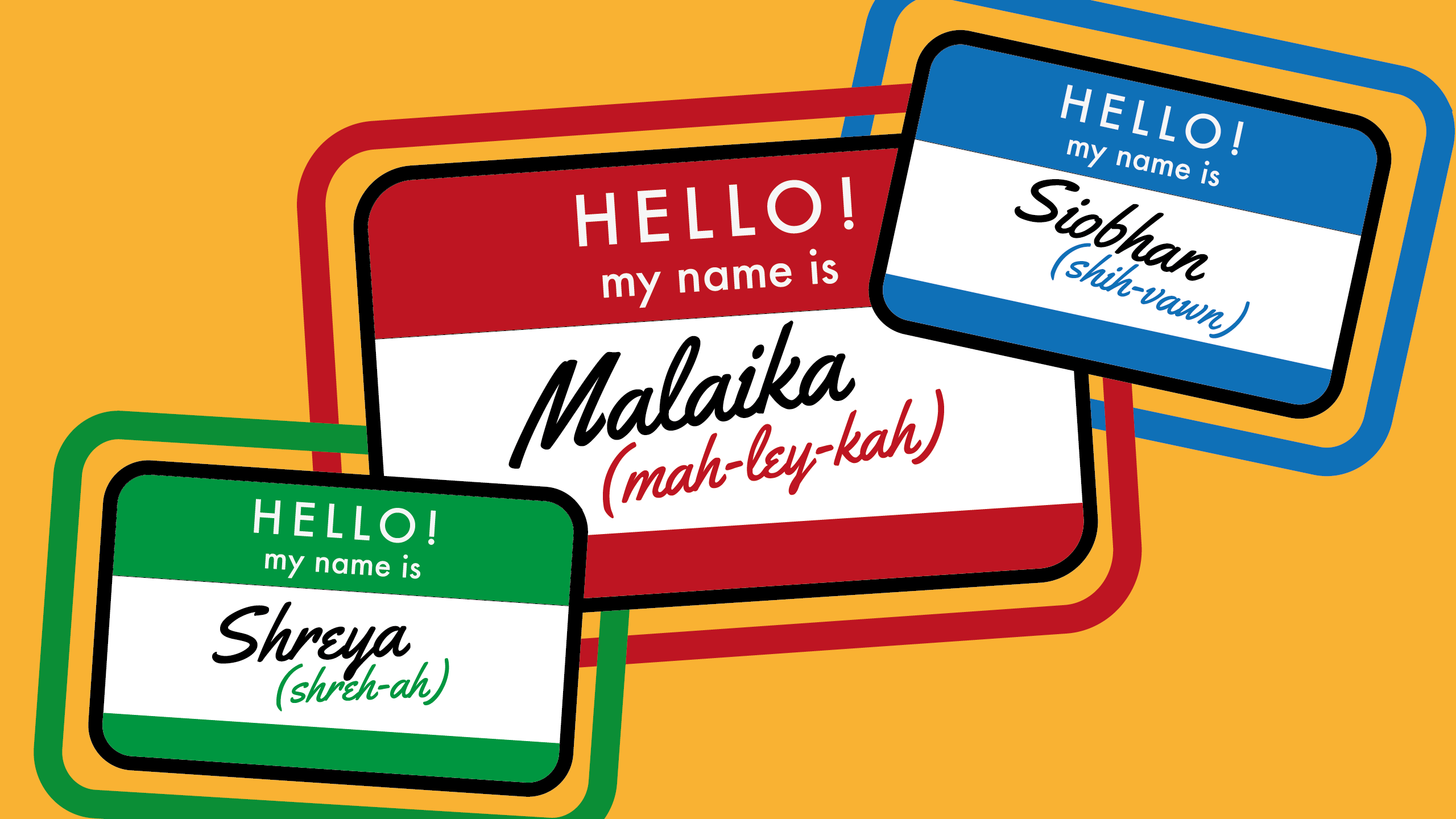By Samreen Maqsood
Arundhati Kaul, a second-year journalism student, said she’s no stranger to the worst feelings of having their name butchered.
“I’ve been in situations where people have referred to me as she/her, or ‘the girl over there,’ or pointed at me to avoid saying my name despite knowing it,” she said.
Arundhati, an Indian name pronounced “ar-oon-dha-tee,” means “washed by the rays of the sun.” Kaul said that she found it dehumanizing that some people would rather point at her than try to say her name and risk getting corrected. One professor mispronounced Kaul’s name for an entire semester, despite Kaul having written it phonetically on the first day of class.
“After a certain point, I stopped correcting people because I felt it wasn’t getting me anywhere,” she said. “Getting my name constantly mispronounced in class and always having to correct others made me uncomfortable, because I felt like I wasn’t being heard.”
According to a recent study of 173 international students at the University of Alberta, half of its respondents felt it important for peers to at least make an effort to learn proper name pronunciation.
“[Names are] so closely enmeshed with our identity, so a mispronounced name may be perceived as a distortion, or a slight against who we are as individuals—especially among ethnic-minority or language-minority students,” said the study’s author, Doris Zhang, in an interview with the University of Alberta’s Folio.
Having a non-Anglo name has long made academic and professional spaces exclusionary for those from diverse ethnic backgrounds, according to a 2018 study by Ryerson and University of Toronto researchers. Institutions, including Ryerson, are looking for modern solutions to limit demeaning mistakes.
Ryerson—along with Western University, the University of Guelph and Simon Fraser University—adopted NameCoach in 2018 to help with the pronunciation of student names. According to Kim McDonald, manager of Ryerson’s Ceremonials Office, NameCoach allows students to record the correct pronunciation of their names, which has been used in the university’s convocation ceremonies ever since.
“Convocation day is an extremely important milestone for graduates and their families. We consider it our duty to our graduates to do everything we can to ensure that their moment crossing the stage is a memorable and happy one,” she said. “Pronouncing their name correctly is a huge part of that.”
Darya Soufian, a second-year journalism student at Ryerson, said she considers her name “pretty straightforward.”
“Since I started grade school, my name was constantly being pronounced differently than how it actually is…people get it wrong all the time to this day,” she said.
Soufian, whose first name means “the sea” in Farsi, said throughout Grades 1 to 6, she had nicknames that were either gross or made her feel self-conscious about her name. Some included “diarrhea” or “Dora.”
“I almost always correct people on the pronunciation of my name but if they get it wrong more than a couple times, then I let it go. At that point I feel like it’s embarrassing for the both of us if I have to keep correcting someone … I don’t mind if my name is pronounced wrong once in a while because it’s a different name than what people are used to in Canadian culture,” said Soufian.
“When we introduce ourselves, the first things we say are our names,” said Roofaidah Haque, a second-year physiology and human biology student at the University of Toronto. “People either always remember names or faces. Pronouncing someone’s name right shows respect towards them and their culture as well as making them feel included.”
Some students, like Seojung Bae, a second-year creative industries student at Ryerson, choose to use their “English” name instead of their birth name.
After a teaching assistant mispronounced her name in class, Seojung prefers to use her English name, Susan, to make it easier for people. While she does not take any offence to the mispronunciation of her Korean name, she understands that pronouncing birth names correctly shows respect for others’ cultures and their identity.
According to their website, NameCoach aims to bring comfort into classrooms by ensuring that professors and classmates are correctly pronouncing each other’s names. It also ensures that the university keeps up with their commitments to diversity and inclusion, said McDonald.
“Diversity and inclusion are integral components across all teaching, learning, research, service and administrative functions of the university. The Ceremonials Office strives to make convocation an inclusive event and this includes ensuring we do our best to pronounce names accurately,” said McDonald.










Leave a Reply